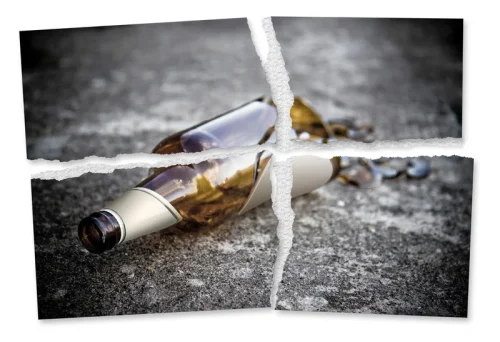5 Stages of Alcoholism: Signs, Symptoms, and Treatments
- Home
- 5 Stages of Alcoholism: Signs, Symptoms, and Treatments

Others can help you reduce cravings and normalize body functions. Alcohol abuse and binge drinking are common, and they put many people at risk of alcohol poisoning, alcohol addiction, and chronic alcohol-related health problems. A low level of alcohol intoxication causes mild symptoms, while severe intoxication, or alcohol poisoning, can be life threatening. The symptoms of alcohol intoxication range from mild to severe, depending on how much alcohol a person consumes and how quickly their body metabolizes it.
Note that a BAC of 0.08 percent is the legal limit of intoxication in the United States. A person can be arrested for driving with a BAC above this limit. BAC and blood sugar levels can both be checked with a simple blood or urine test. While you wait, make sure the intoxicated person remains upright and awake. If you believe someone is significantly intoxicated, the first thing to do is to remove any additional alcohol from their immediate surroundings so they can’t continue to drink.

Our admissions team can verify your benefits and help you understand your options. Drunkenness is an umbrella term encompassing physical and psychological symptoms attributed to alcohol consumption within a period. When the speed at which alcohol is metabolized is faster than what the human body can consume, an individual develops drunkenness. Drunkenness, which is officially known as intoxication, occurs when someone has consumed alcohol excessively. The process of being drunk consists of several stages, with an initial buzz being felt all the way to potentially dangerous levels of unconsciousness in the worst-case scenario.
Relapse prevention is incorporated into every level of our Substance Abuse Treatment Program Boston, with ongoing reinforcement throughout care. Alcohol poisoning can result in death through a respiratory arrest, which can occur at a BAC of 0.45 or higher. Alcohol servers and bartenders must remember that this is the legal limit for intoxication. When someone reaches this stage, they are no longer legally able to drive.
For some people, it is helpful to stop drinking when they start feeling tipsy or are in the euphoric stage. While there isn’t a guarantee you will be below 0.08 BAC at this stage, it is a good marker to prevent some of the harmful effects of alcohol if you continue drinking. It’s a myth that a person can recover from alcohol intoxication by sleeping, taking a cold shower, going for a walk, or drinking black coffee or caffeine. In fact, doing these things can put an intoxicated person at greater risk of injury and death.

Their brain is changing—and without help, there can be serious long-term consequences. There are different types of alcoholics, alcoholic personalities, and tolerances, but the health effects Substance abuse are the same, especially long-term. Prolonged and heavy alcohol consumption permanently changes brain chemistry. There are somewhat predictablestagesthat a person will go through when they drink alcohol. Thestages of intoxication varyfrom person to person based on a variety of factors.
The person will be hospitalized until their vital signs return to normal. Both young people and adults can experience alcohol poisoning. The condition is usually linked to drinking too many alcohol beverages. But in some cases, people with this condition might have accidentally or intentionally drank household products containing alcohol, such as mouthwash or vanilla extract.
Alcohol addiction is a chronic but treatable stages of alcohol intoxication condition that affects millions of individuals and families across the U.S. The road to recovery isn’t linear, and for many, it requires multiple levels of support and a well-structured treatment plan. It should not be used in place of the advice of your physician or other qualified healthcare provider.

You’ll want to find a rehab center that has medically-supervised detox capabilities so that you can comfortably and safely detox from alcohol. There are inpatient and outpatient options, but an addiction specialist should determine the best level of care for you based on your individual needs. Effective addiction treatment providers will have addiction counselors, but they should also have mental health services as many people with alcoholism have co-occurring mental health conditions. If someone is struggling with alcohol use disorder and trying to quit drinking, professional help may be necessary.